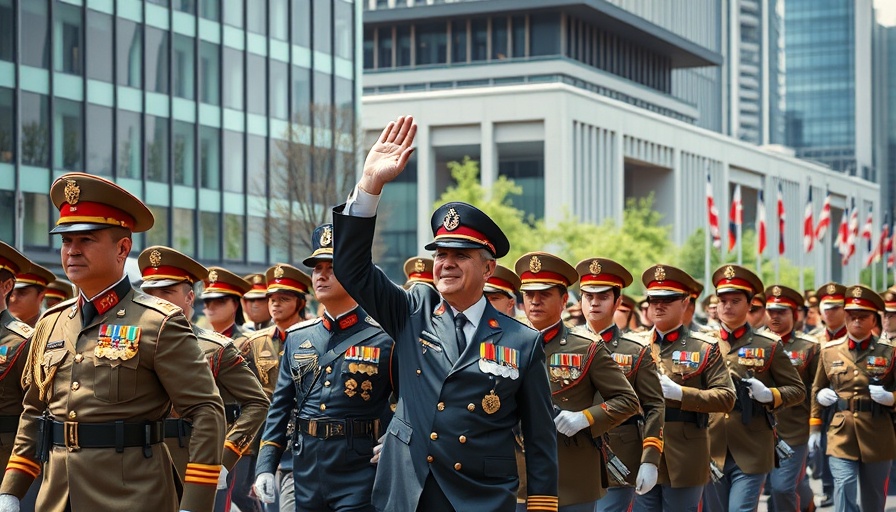
Understanding the Global Interest in Senegal's Defense Sector
Senegal is increasingly becoming a focal point for international arms firms, creating a buzz in the defense sector. With its newly planned military programming law and significant contracts for military procurement, the nation is capturing the attention of global players, particularly from Russia, China, and Israel. These countries are eyeing Senegal as a strategic partner due to its growing importance in the West African security landscape.
Historical Context: Why Senegal is a Defense Hub?
Historically, Senegal has been a beacon of stability in West Africa, and its defense sector is beginning to reflect that legacy. As the country navigates a delicate balance of internal security and external partnerships, its military upgrades and modernization efforts become pivotal. The fundamental shift towards industrialization and self-reliance is essential, especially as Senegal faces various regional security threats.
The Significance of Arms Contracts
Recent contracts valued at over €300 million, notably with Turkish firms, signal Senegal's commitment to enhancing its military capabilities. This investment is not merely for defense; it reflects a broader economic agenda tied to development goals. The goal is to replace foreign dependence with local production capabilities while fostering job creation and technological advancement, aligning with the nation's push towards economic growth and industrialization.
Counterarguments: Concerns of Militarization
Despite the potential benefits, the increasing militarization raises critical concerns. Critics argue that heavy investments in defense may divert essential resources from urgent needs like healthcare, education, and infrastructure. With the backdrop of challenges such as corruption and potential human rights abuses, the debate intensifies on whether arms agreements bolster peace or deepen conflicts in the region.
Future Insights: What Lies Ahead for Senegal’s Defense?
The evolving landscape suggests that Senegal has the opportunity to shape its own narrative in global defense discussions. Enhanced military capabilities could facilitate more robust regional security cooperation, particularly through organizations like ECOWAS. Additionally, a commitment to democratic governance amidst these changes could inspire trust and further foreign investment, promoting stability.
Engaging with Regional Partners: The Path Forward
For Senegal, navigating its relationships with foreign powers presents both opportunities for investment and challenges related to sovereignty and governance. As the regional dynamics shift, Senegal can position itself as a leader in promoting peace and security in West Africa by facilitating dialogues centered around cooperation and collective security strategies.
Conclusion: A Balancing Act for Senegal
As Senegal continues to attract attention from global arms contractors and defense leaders, the challenge will be to ensure that this increased focus translates into genuine national development. It is crucial for policymakers to manage the balance between strengthening military capacity and ensuring the long-term well-being of its citizens through meaningful investments in education, healthcare, and economic development. The success of this balancing act will determine if Senegal can truly thrive in a complex geopolitical landscape.
 Add Row
Add Row  Add
Add 




Write A Comment